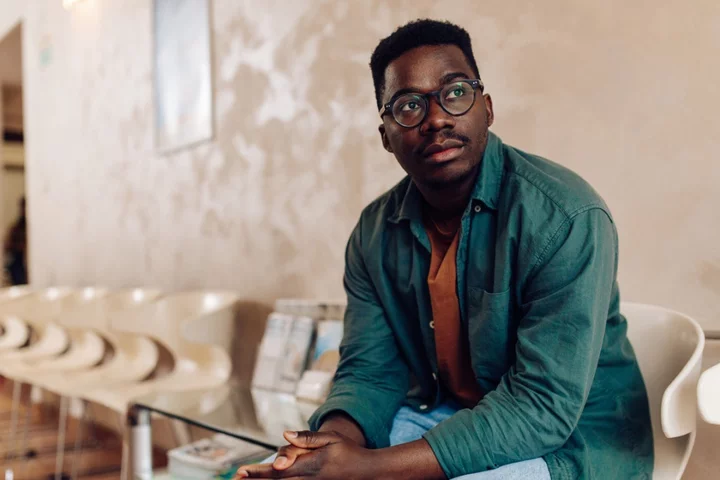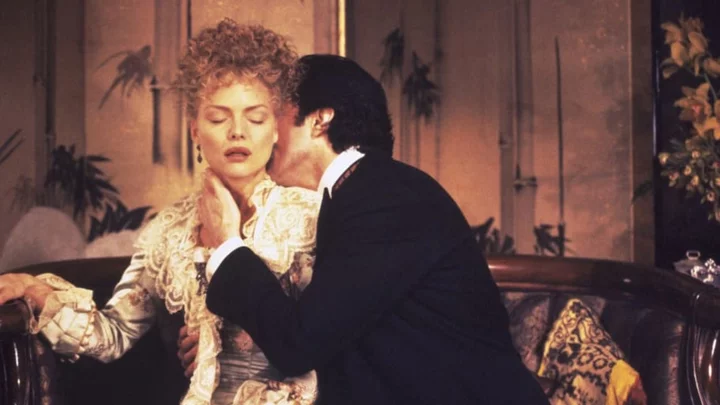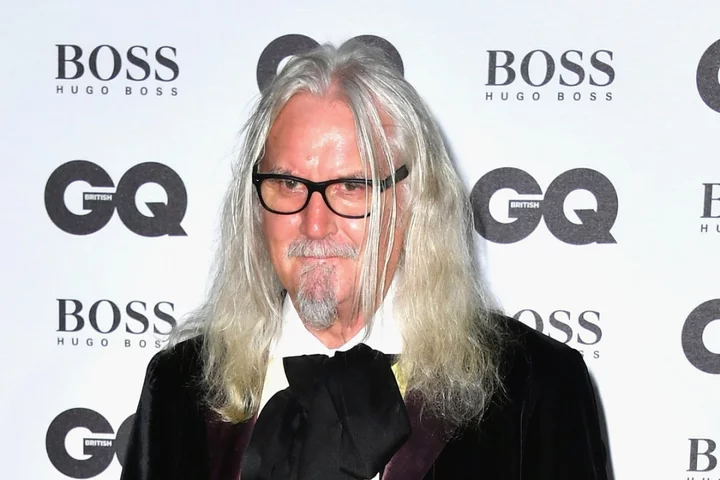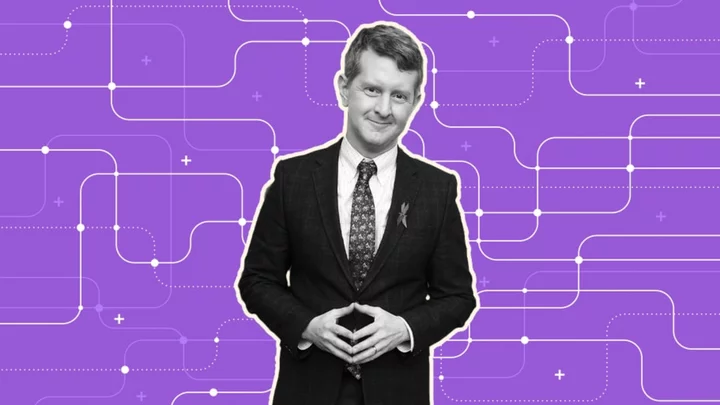
Brits think investing is for the super-rich, poll finds
Brits think investing is strictly reserved for the super-rich - with 45 per cent not getting involved themselves. A poll of 2,000 adults found 38 per cent associate it with city bankers, while 21 per cent think it’s the domain of older adults. And 47 per cent admit they’re daunted by the prospect of getting started - with four in 10 not having a clue where or how to begin. A third (32 per cent) also didn’t start taking any active interest in their pension until they were 36 or older. Liz Fernando, chief investment officer for Nest pensions, which commissioned the research, said: “Pensions are a great way to invest your money and watch it grow over time, in the background while you work. “It’s evident that there’s a lot of work to do to demystify perceptions surrounding who can enter the world of investment – it really can be for everyone.” The results also found 49 per cent think the general perception of investing being primarily for the wealthy acts as a barrier for other people who would otherwise want to invest. As almost three-quarters (73 per cent) feel these opportunities should be accessible for people from all income levels. Among the three groups which Brits feel are most underrepresented when it comes to investing are the working classes (46 per cent), young people (34 per cent) and ethnic minorities (29 per cent). For nearly eight in 10 (78 per cent), the fear of losing money makes the idea of investment off-putting. While lack of investing knowledge (52 per cent), uncertainty about the economy (51 per cent) and not knowing where to begin (38 per cent) are among the top fears. But 64 per cent believe more people would be likely to invest – if they could see where exactly their money is going. A third would describe their investing knowledge as ‘bad’ - while 53 per cent feel clear and transparent information about investment options would help ease their concerns. Simpler investment platforms or tools would feel most beneficial for 49 per cent of those polled via OnePoll. And when it comes to pensions, profitability is sought-after for 58 per cent. While investing in sustainable businesses is vital for 29 per cent. More than four in 10 (42 per cent) are connected to their pension through an employment plan – while 15 per cent contribute through a private plan. Liz Fernando for Nest pensions added:” We know your pension pot can be one of the most valuable ways to help secure your future retirement, and it’s right you know where it’s being invested - especially when you’re saving into it for decades”. “We don’t know how the world of finance will look in years to come, but we do know your future self should be grateful that you are adding to your pot.” Read More Four in ten Brits ignore potentially serious eye problems, study finds The exact time Brits find themselves ‘uncontrollably hungry’ revealed Sounds that can help you fall asleep better Exact time Brits find themselves ‘uncontrollably hungry’ revealed Top 10 acts which make people feel more positive Brits feel their mental health declining due to cost of living crisis
2023-10-02 22:20

What Exactly Is Horseradish Sauce?
Prepared horseradish and horseradish sauce aren’t the same thing.
2023-10-02 21:26

13 Hallmark Christmas Movie Locations You Can Visit
Hallmark's Countdown to Christmas kicks off on Friday, October 20. Here are some film locations to visit to get in the holiday spirit.
2023-10-02 20:29

The curious status of the vasectomy in the UK in 2023: ‘Young, none and done’
In the fallout from last year’s overturning of Roe v Wade, the legislation that secured abortion rights in the US, a great many young American men simultaneously did a quite radical thing. They took to social media to intimately document themselves getting a vasectomy, to prove it was a simple and painless act. One was vegan bodybuilder and influencer Brian Turner, who was certain from around the age of 22 that he’d never want children. He acted on his stance, aged 30, and made some genuinely great content in the process. “The reaction was positive,” he tells me. “A few people commented in disbelief, calling me crazy names or saying, ‘You’re no longer a man – you chopped your balls off.’ But they don’t bother me. I have a thick skin.” It started a global discussion on vasectomies, chiefly around how men can step up and take the burden of contraception away from their female partners forever. Adam, a 35-year-old father of two from Brighton, had the same desire around the same time: “I had a growing guilt about never really fully taking responsibility for contraception. Apart from condoms, all the solutions are for women, and they all seem to have pretty gnarly side effects. It seemed like the decent thing to do, to try to take on the responsibility.” But what of younger British men, who absolutely, definitely don’t want children, who know they want to be what I call “none and done”? For them, although the hurdles are curiously higher and their reasoning more diverse, the same desire to make an informed decision about their body exists. Britain has never had a big national conversation about the vasectomy, the way America – a place where some states even offered them for free in the wake of the Supreme Court’s historic verdict – clearly has in recent years. “The vasectomy was thought to be illegal here until around the Sixties, and only came on the NHS in the early Seventies,” explains Dr Georgia Grainger, a historian of vasectomy. Before this, the concept of men choosing to sterilise themselves was – in her words – “murky”, owing to many of the key doctors and campaigners evangelising the process also being supporters of eugenics. It was actually the beloved broadcaster Michael Parkinson who, in Grainger’s eyes, did the most to burst bubbles on the subject. “He was open about having a vasectomy back in 1972 when it was still very uncommon. He did an interview about it that was on the front page of the first issue of Cosmopolitan magazine. It definitely brought awareness and also dispelled some myths – that it would affect a man’s masculinity or even cause things like a higher-pitched voice”. While the procedure has undoubtedly become more common, I’m not sure that we as a society know a huge amount more about it than in the Seventies. The good news for men is that the procedure is more successful than ever. Doctors reported in March this year that, after surveying 94,000 patients, only 0.2 per cent of men get what’s known as “chronic scrotal pain”. It is generally seen as being more than 99 per cent effective as a form of birth control. The bad news is that there’s still a lot of misinformation around it – from daft macho ideas that it decreases your testosterone levels or sex drive (it doesn’t) to the more assimilated notion you hear a lot: that, similar to an intrauterine device (IUD) with women, it’s easy to undo (it isn’t sadly, not all reversals work, they get less successful over time plus they’re significantly more expensive too). In reality, a vasectomy is quick, carried out under local anaesthetic and takes around 15 minutes. Today, most are what’s known as “scalpel-free”, meaning the incision is so tiny (only 2-4mm) that it doesn’t require stitches. The two tubes that carry sperm from your testicles are severed (hence the colloquial term “the snip”) and closed. Post-surgery, men are encouraged to rest for a couple of days, to apply ice packs to their scrotum and – if possible – wear a jock strap that’s slightly too small to ease any swelling. And that’s it. “The most common question I get asked is, “Do you still cum?’”, says Gregory, who had a vasectomy in January. “It’s funny how so many people think you’ll never ejaculate again after a vasectomy. The truth is: the difference isn’t noticeable.” In fact, sperm is still produced, but it’s discharged internally and absorbed by the membrane around the epididymis (the coiled tube behind each testicle) in a totally natural process. The body still produces semen, which is ejaculated but it no longer contains sperm – although it’s said that a man needs to ejaculate on his own a good number of times before the presence of sperm totally vanishes. “I did hear rumours about ‘40 w***s’,” confirms Gregory, “but I just stuck with the doctor’s deadlines and the sperm test came back clear four months later.” Yet, while the procedure has some fringe areas of conjecture, one important aspect is dramatically less well known: men – especially young men – won’t automatically be granted a vasectomy if they choose to have one. There’s huge variation in the UK, based on regional NHS procedures and resources, plus, “a lot depends on the individual doctor, unfortunately” according to Grainger. Some areas don’t offer them, meaning having to go private and pay an often prohibitively expensive £600. But even simply having the autonomy to choose is also a grey area. “A lot of younger men, especially if they’re unmarried or don’t have children, really have to push to get a doctor to take them seriously,” says Grainger. “We often think of that kind of pushback as being something women get within their reproductive healthcare, but I’ve heard a lot of men share their experiences of having to go to multiple doctors to find one to agree to refer them for a vasectomy, just because they ‘might change their mind’.” This seems like quite a significant flashpoint, given that all the urologists we spoke to confirmed a definite movement of younger people wanting the snip. “Traditionally, the typical age of a man seeking a vasectomy would be 35-40 years old,” states Dr Peter Quinn who performs the procedure for Vasectomy NI. “However we are finding more and more younger men in their twenties are looking for a permanent method of contraception.” Luckily, I didn’t encounter a single man who had any regrets or who had “changed their mind”. What I found instead were more men making an informed choice around their own reproductive health, from a variety of backgrounds, viewpoints and life situations. Some for example, like Simon, are single and dating. He had his tubes snipped aged 28, while in a long-term relationship that subsequently ended. Does he have any regrets? “Absolutely not – I really want to make that clear.” Despite being from a big family with plenty of cousins whom he loves, he’s felt like he’s known he never wanted children himself “from as far back as my teens”. Now aged 30, he’s starting to date again. He doesn’t declare his snipped status on the dating app he uses, but does bring it up quickly, in case there’s any awkward confusion. “Not wanting to have kids is a pretty big part of who I am, I feel like I talk about it all the time anyway without needing to advertise it.” Ray, who is also young, single and snipped feels “it’s a flex” when it comes to being on the dating scene. Aside from being a talking point and a sign of emotional maturity, crucially it “finalises that aspect of ‘maybe he’ll change his mind’. which I have experienced in relationships in the past. I’ve been very clear I don’t want children previously, but nobody fully believes that when you tell them. They might put it to one side and say ‘let’s think about that later’.” Ray also has no regrets. Dr Nick Demediuk has performed more than 50,000 vasectomies in his career. The name of his clinic in Australia says it all: Dr Snip. His perspective over 34 years of performing a life-changing operation is thus pretty unique and his recommendation is unequivocal: “It’s the simplest and easiest form of permanent contraception that responsible men can use to contribute to their relationships and the planet.” For him, one of the key reasons behind the growth in younger men taking up vasectomies has been “issues related to climate change”, with a significant subgroup of “hard-line vegans”. There’s not enough resources for people alive on earth today – it feels almost a bit selfish for us to contribute to that scenario Nat and Charlie* This chimes with Nat and Charlie*, a male/female couple who moved from a big city to the English countryside this year, in part motivated by a desire to give their beloved trio of cats more space. Having been on the fringes of eco-activism since university, their decision – raised initially by Nat and enthusiastically supported by Charlie – to have the procedure when Nat was 29 was very much informed by the climate emergency. “We both feel like we’re loving people and capable of lots of love,” says Charlie “but we both felt inside of ourselves that we never wanted to have children, especially in the world as it is today.” Citing the extreme weather events all over Europe this summer as just one example, they fundamentally worry about the world being safe enough to bring kids into, as well as the feeling that “there are not enough resources for people alive on earth today – it feels almost a bit selfish for us to contribute to that scenario.” They stop short of endorsing the emerging philosophy of anti-natalism, a controversial belief first advanced by South African philosopher David Benatar that sees all human reproduction as immoral, in part due to the climate emergency but also because life is inevitably tinged with suffering and pain. But, in choosing not to have children out of concern for the environment, they find themselves at one end of an extreme and widening political spectrum. The same week I speak to them, Hungary’s leader Viktor Orban was holding the fourth of his biannual Demographic Summits, which – with Italy’s leader Georgia Meloni, religious leaders and right-wing thinkers in tow – aimed to solve what’s seen as a crisis in underpopulation in Europe. Encouraging more babies via defence of traditional family values feels a world away from the outlooks of Nat, Charlie and the many others taking up the vasectomy as a way of definitely not having kids on principle. As if we didn’t have enough 50-50 splits in society today, an increasing number of people believe we need fewer children while an equal number believe we need more. Britain in 2023 therefore seems conflicted between two worlds – the privatised freedom of America where a young, non-parent like Brian Turner is waved through (“I talked to my GP and she said, ‘All good’ and referred me straight away”) and a more prohibitive or simply untrusting mindset that looks at a young man and says, “Hmm, go away and think about it a while.” Perhaps if we want young men in society to play a more positive, active role, maybe they need to be trusted with their own bodily autonomy first? *Names have been changed Read More No music, no ball games, no fun: society is wiping out play ‘I was really struggling to get it up’: Why younger men are turning to Viagra I couldn’t climax, so I let ‘big testosterone’ take me for a ride Woman prepares hamper basket as her husband’s vasectomy gift Why taking a mental health day could be bad… for your mental health What the world’s happiest children tell us about where Britain is going wrong
2023-10-02 15:49

Does my child have ADHD or are they just a livewire?
ADHD awareness is on the rise – yet it can still sometimes be tricky for parents and carers to know whether their child is affected or not. It’s estimated that 5% of children in the UK have ADHD, according to the charity ADHD UK. And while the condition has previously been stereotypically associated with ‘disruptive’ and ‘naughty’ behaviour, particularly in young boys, it is now understood to be far more complex and nuanced than that. “Attention deficit hyperactivity disorder, or ADHD, is a neurodevelopmental condition that impacts someone’s attention, their levels of hyperactivity and impulsivity,” explains Dr Seb Thompson, consultant clinical psychologist at Cygnet Health Care. “Typically when someone has ADHD, they tend to struggle with their attention, with hyperactivity and with impulsivity – although it is possible to just struggle with symptoms from one of those,” Thompson adds. Of course, no child has ‘perfect’ concentration all the time, and many kids can have impulsive moments or bouts of being a bit hyperactive. So, how do you know if they’re actually showing signs of ADHD? To mark October’s ADHD Awareness Month, we talked to some experts… ADHD does not always look the same There are some common patterns that crop up with ADHD, however it can also affect individuals very differently. So, if another child has similar behavioural traits to yours and has had a diagnosis, that does not necessarily mean your child has ADHD too. At the same time, children could have very different behavioural traits, yet both have ADHD. “Every child with ADHD will probably struggle with a unique set of difficulties,” explains Georgia Chronaki, senior lecturer in developmental neuroscience at University of Central Lancashire. “[For example] One child might struggle with paying attention in class, another may struggle with managing their emotions.” They find being still and quiet really hard It may be a stereotype, but uncontrollable fidgeting could be an indicator of possible ADHD. Thompson explains: “The hyperactivity and impulsivity difficulties associated with ADHD could include being unable to sit still without fidgeting, excessive restlessness, finding the quiet to be uncomfortable, difficulty engaging in tasks quietly, difficulties in turn-taking, impulsively saying or doing things without thinking through consequences, as well as a tendency not to consider the risks of behaviour.”Your child is often forgetful and loses things easilyThompson says if they are “frequently misplacing or losing items, being easily distracted, appearing to be daydreaming, and having difficulties remembering to do tasks and difficulties following through with instructions”, it may be linked with ADHD. You can tell your child is struggling If your child seems to be finding things a struggle, this could be a big indicator. “Imagine really wanting to pay attention to a conversation that is happening but your brain is not letting you,” says Thompson. “Imagine really wanting to focus on your homework, but your brain is not letting you. Imagine really wanting to sit and watch a TV programme, or sit and eat a meal, or sit and relax and your brain is not letting you. “The world can be a very frustrating place for young people with ADHD, particularly if they do not understand why their brain works in the way it does.” They seem down or depressed Thompson adds that kids with ADHD “can often suffer with low self-esteem, depression and anxiety”. He explains: “Young people who get frustrated by their difficulties may stop trying at school, or lose interest in their hobbies because they can’t sustain the attention to take part.” Seeking advice If any of these things are impacting your child’s wellbeing and making things seem hard for them, or if you are concerned they may have ADHD, then it may be worth seeking professional support. Diagnoses are typically given by specialist ADHD assessment teams, and referrals tend to be made via schools or Child and Adolescent Mental Health Services (CAMHS). Read More Charity boss speaks out over ‘traumatic’ encounter with royal aide Ukraine war’s heaviest fight rages in east - follow live Naomi Campbell on the catwalk at Sarah Burton’s final Alexander McQueen show This is how your make-up needs change as you age Victorian dahlia show recreated at Stonehenge with thousands of flowers
2023-10-02 14:55

The Split star Anna Chancellor announces the death of artist daughter Poppy, aged 36
The Split and Four Weddings and a Funeral star Anna Chancellor has announced the death of her only daughter, Poppy, aged 36. On Saturday (30 September), the actor shared the sad news that Poppy had died from leukaemia on Friday (29 September) on her daughter’s Instagram page. “To all you wonderful and most-loved friends of Poppy. We send you this message with our deepest love,” the heartfelt statement began. “On September 29 Poppy died, held tight by her immediate family just as she had wished. “Despite every effort, her body could not continue any longer. We will be forever grateful to her kind and loving care team at the Royal Marsden. So we, her family and friends who all adore her join the other families who have lost loved ones far too young.” The message added that her family would continue to support her “soul’s journey”, before continuing: “Poppy was and is an unbelievable life force of creativity, compassion, wit, beauty and sheer uniqueness. She transformed our lives, and we are beyond grateful.” Poppy was born in 1988 to Chancellor and the poet Jock Scot. She was an illustrator and artist who had worked for brands such as Adidas and Cath Kidston. According to the Daily Mail, King Charles is rumoured to own one of Poppy’s artworks, given to him as a thank-you after she attended an artists’ residence at his stately home, Dumfries House, in Ayrshire. In May, Poppy spoke to the publication ahead of undergoing chemotherapy. She said: “I am terrified and physically exhausted – at the same time as learning to talk to my body and cells with loving defiance.” Poppy had been keeping her social media followers updated on her health. As well as sharing videos of herself dancing, which she dubbed “the best medicine”, Poppy recently posted an image of herself in a hospital bed after a stem cell transplant in August. Anna Chancellor has acted on screen since 1990, beginning with a role in the soap opera Jupiter Moon. In the Nineties, Chancellor was known for playing barrister Julia Piper in the legal drama series Kavanagh QC as well as playing Caroline Bingley in the 1995 BBC adaptation of Pride and Prejudice. Other recognisable roles include Henrietta “Duckface” in Four Weddings and a Funeral, Lady Anstruther on Downton Abbey, and Melanie Aickman in seasons two and three of the BBC family law drama The Split. Poppy was Chancellor’s only child. Read More Billy Connolly says ‘cruel’ Parkinson’s disease has made it difficult to walk Fred Sirieix shares details of medical procedures to ‘investigate’ recent blood tests David Beckham explains why he never sought therapy after 1998 World Cup match left him ‘depressed’ Billy Connolly says ‘cruel’ Parkinson’s disease has made it difficult to walk Fred Sirieix shares details of medical procedures to ‘investigate’ recent blood tests David Beckham explains why he never sought therapy after 1998 England match
2023-10-01 22:22

10 Great Period Pieces to Add to Your Watch List
These period pieces range from illicit romances to high-society murder mysteries.
2023-10-01 20:20

Eddie Izzard channelled stand-up energy in Doctor Jekyll
Eddie Izzard utilised her stand-up energy to perform as Rachel Hyde in new horror movie 'Doctor Jekyll'.
2023-10-01 15:25

Naomi Campbell on the catwalk at Sarah Burton’s final Alexander McQueen show
Naomi Campbell played a starring role on the catwalk as Sarah Burton presented her last collection as creative director of Alexander McQueen. The British supermodel, 53, closed the spring/summer 2024 show wearing a stunning silver ensemble comprised of a strapless beaded corset and a draped skirt that shimmered as she walked. Cate Blanchett, who often wears McQueen at awards ceremonies, was on the front row at the Paris Fashion Week event. The Australian actor was dressed in a black suit with a huge pink bow on the back. American actor Elle Fanning – who stars alongside Campbell in the label’s autumn/winter campaign – was also in attendance, the 25-year-old wearing a full-skirted polka dot dress with a statement choker necklace. The spring/summer 2024 collection represents the end of 26 years at the British fashion brand for Burton. She was appointed to the role of creative director in 2010 following the death of Lee Alexander McQueen, having worked alongside the groundbreaking designer for 14 years. Burton was responsible for creating the wedding dress worn by the Princess of Wales when she married Prince William in 2011. Kaia Gerber – daughter of supermodel Cindy Crawford – opened the spring/summer show in a short black corset dress. With a keyhole cut-out on the chest, the long-sleeved dress hinted at the subversive designs that were to come. Lee Alexander McQueen was the master of gasp-inducing fashion and for Burton’s final collection she served up plenty of suggestive slits alongside her usual bold tailoring and glamorous gowns. “This collection is inspired by female anatomy, Queen Elizabeth I, the blood red rose and Magdalena Abakanowicz, a transgressive and powerfully creative artist who refused ever to compromise her vision,” Burton revealed in the show notes. “The show is dedicated to the memory of Lee Alexander McQueen, whose wish was always to empower women, and to the passion, talent and loyalty of my team.” Burton is the latest designer to take inspiration from roses for spring, following Simone Rocha at London Fashion Week and Balmain’s Olivier Rousteing in Paris. The queen of flowers featured repeatedly, first in the form of photorealistic scarlet stems blown up on black and white slip dresses. Later, a pair of ruffled pink and red ombre gowns resembled rose petals (as well as, it must be said, a certain part of the female body). Exploring shape and volume, the designer sent out curved leather corset tops with exaggerated hips, shaggy coats and draped dresses. Sharp-shouldered jackets were decorated with intricate crimson embroidery that looked like brushstrokes (or possibly blood stains), the ends of the threads hanging off to form flowing tassels. The floral theme continued with an elaborately woven cream jumper and an opulent golden lace dress teamed with thigh-high leather boots, before the show culminated with some sparkling stand-out looks. Burton has excelled at eveningwear throughout her time at McQueen, displaying almost couture-level craftsmanship, and this show was no exception. A white tulle gown with glittering gunmetal adornments cascading across one sleeve and a form-fitting jumpsuit covered in silver beading were highlights. Following Campbell’s star appearance, David Bowie’s Heroes played as the models took their final turn on the catwalk. The audience was already on its feet applauding as Burton appeared to receive her standing ovation and hug VIP guests. The house of McQueen has yet to announce who will take the take over as creative director. Read More Charity boss speaks out over ‘traumatic’ encounter with royal aide Ukraine war’s heaviest fight rages in east - follow live This is how your make-up needs change as you age Victorian dahlia show recreated at Stonehenge with thousands of flowers Daily activities could help lower heart attack risk, study suggests
2023-10-01 06:26

Billy Connolly says ‘cruel’ Parkinson’s disease has made it difficult to walk
Billy Connolly has shared updates on how Parkinson’s disease has had a greater effect on his physical abilities over time. The actor and comedian, 80, was diagnosed with Parkinson’s disease in 2013 and retired from his stand-up career in 2018 due to the illness. Parkinson’s is a brain disorder that causes unintended or uncontrollable movements, such as shaking, stiffness, and difficulty with balance and coordination. Often, the disease gets more severe over time. In an interview conducted by Connolly’s wife, the writer and psychologist Pamela Stephenson Connolly, the comedy figure gave insight into how his Parkinson’s disease has had a greater effect on his physical abilities. “It’s very difficult to see the progression exactly, because a lot of things come and go,” he began in the Guardian profile, published on Saturday (30 September). “Recently I’ve noticed a deterioration in my balance. That was never such a problem before, but in the last year that has come and it has stayed. For some reason, I thought it would go away, because a lot of symptoms have come and gone away… just to defy the symptom spotters.” He added that the shaking had reappeared, as well as “the inability to get out of certain types of chairs”. Stephenson added that balance had been the most significant factor to affect the star’s health, and had resulted in “a couple of serious falls”. “It’s funny, that fall I had when I landed on my jaw reminded me of a thing I used to do on stage,” Connolly replied. “I used to say: “I fell out of bed, but luckily my face broke my fall…” “It wasn’t so funny when you broke your hip,” Stephenson said in response. The What We Did on Our Holiday star noted that his declining ability to control his body movements is one factor “added to the list of things that hold me back”. “I feel like I want to go for a walk, but I go for 50 yards and I want to go home, because I’m tired. I’m being encroached upon by this disease. It’s creeping up behind me and stopping me doing things. It’s a cruel disease.” Elsewhere in the interview, the couple discussed the changes to their relationship as a result of his changing health. Connolly praised Stephenson for her ability to care for him. “It’s lovely. I found a new you. I found a new Pamela. And it’s worked out great. I never thought that you’d be able to look after me the way you do. “I thought it would annoy you terribly,” he continued. “You were such an independent “look after yourself” kind of person. But you’ve rallied round to looking after me. And it suits you great. And it sure suits me lovely.” Read More Lorraine Kelly shares the career advice she got from Billy Connolly Fred Sirieix shares details of medical procedures to ‘investigate’ recent blood tests David Beckham explains why he never sought therapy after 1998 World Cup match left him ‘depressed’ Fred Sirieix shares details of medical procedures to ‘investigate’ recent blood tests David Beckham explains why he never sought therapy after 1998 England match Climbing 5 flights of stairs a day could cut risk of heart disease, study suggests
2023-10-01 00:54

What’s the Kennection? #82
All five answers to the questions below have something in common. Can you figure it out?
2023-10-01 00:17

David Beckham explains why he never sought therapy after 1998 World Cup match left him ‘depressed’
David Beckham has explained why he never sought out therapy despite suffering from depression after his expulsion from an England game in 1998. The former Manchester United and Real Madrid footballer is one of the sport’s biggest-ever stars and is considered a national treasure to many. In 1998, however, Beckham was subject to widespread criticism after he received a red card during England’s World Cup match against Argentina. Beckham’s exit from the pitch was considered a major reason for the team losing the game and getting eliminated from the tournament. The footballer was met with a huge amount of public disdain, which included an effigy of him being hung outside a pub. The incident is covered in the athlete’s forthcoming Netflix documentary, Beckham, and includes his wife Victoria Beckham stating her belief that David was suffering from depression as a result of the public reaction. In a new interview with The Telegraph, Beckham agreed that he was depressed at the time, explaining that he did not feel as though he could acknowledge his mental health struggles openly. “It’s something I would never admit, because I was brought up by a dad who, if I said, ‘Dad, I’m feeling a bit low today,’ he’d have said, ‘Boy, get on with it,’” he said. “But I was [depressed]. I wasn’t eating, I wasn’t sleeping. I was living day to day thinking about what was coming next. People were saying I should leave the country. It was tough.” Beckham went on to say that he didn’t seek therapy at the time – and hasn’t sought it out in the years that followed – mostly due to his East End upbringing. “People have mentioned it, and I think therapy is a good idea – in this day and age you hear more about sports stars going to have therapy, and how much it helps. “But I was brought up in the East End of London. If I’d said to my dad, ‘I need therapy’, he’d have said, ‘What for?!’ So I put my head down and worked harder.” Beckham has been an advocate for mental health for many years. He first spoke out about his struggles with obsessive-compulsive disorder (OCD), a condition that causes a person to have obsessive thoughts and/or compulsive behaviours, in 2006. He speaks candidly about the condition in his documentary. In one scene, Beckham explains that he will spend hours tidying after his family go to bed. “I clean it so well, I’m not sure it’s actually appreciated so much by my wife, in all honesty,” he says. “The fact that when everyone’s in bed I then go around, clean the candles, turn the lights on to the right setting, make sure everywhere is tidy. I hate coming down in the morning and there’s cups and plates and, you know, bowls.” Beckham will be available on Netflix from Wednesday 4 October. Read More David Beckham shares secret to successful 24-year marriage to Victoria Beckham David Beckham kisses daughter Harper on the lips after previously defending displays of affection Victoria Beckham refutes claims she ‘stalked’ David Beckham before they met David Beckham shares secret to successful 24-year marriage to Victoria Beckham David Beckham kisses daughter on the lips after defending displays of affection Why are there no good celebrity couples anymore?
2023-09-30 21:28
